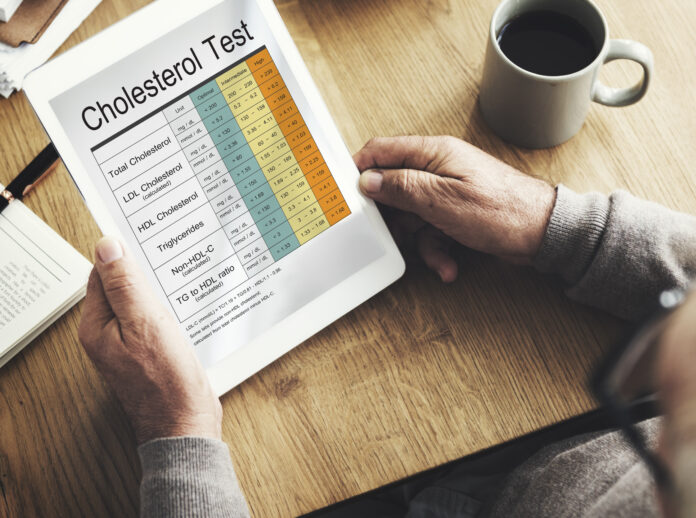Your blood contains lipoproteins, which carry fat, fat-soluble vitamins, and cholesterol. Limiting saturated fats and incorporating light workouts into your daily routine may help Lower Cholesterol Levels in your blood by decreasing the amount of low-density lipoproteins (LDL).
Lipoprotein has two prominent types, high-density lipoprotein (HDL) and low-density lipoprotein (LDL).
Scientific and medical researchers have proven that higher amounts of low-density lipoprotein accumulate in your blood vessel walls and cause high cholesterol levels that lead to clogged arteries and increased risk of heart attack while High Density Lipoprotein also known as good cholesterol helps your blood to carry accumulated cholesterol away from blood vessel walls, preventing the serious conditions like a heart attack or blocked arteries.
In addition, your liver also produces cholesterol according to your body’s requirements. Yet, several factors affect the levels of cholesterol in your blood, including:
- Smoking.
- A sedentary lifestyle.
- Alcohol consumption in large quantities.
- Your family history.
Online Health Point is going to help you by discussing Natural Ways to Lower Blood Cholesterol Levels through this article. So, stay with us and continue reading!
According to a study by the medical research department of Heart Health, positive changes in your daily diet can help you lower cholesterol levels and improve the armada of fats floating through your bloodstream. You can add foods that lower the LDL and the harmful cholesterol-carrying fats that cause artery-clogging atherosclerosis. Adding such foods is an effective way to have a low-cholesterol diet.
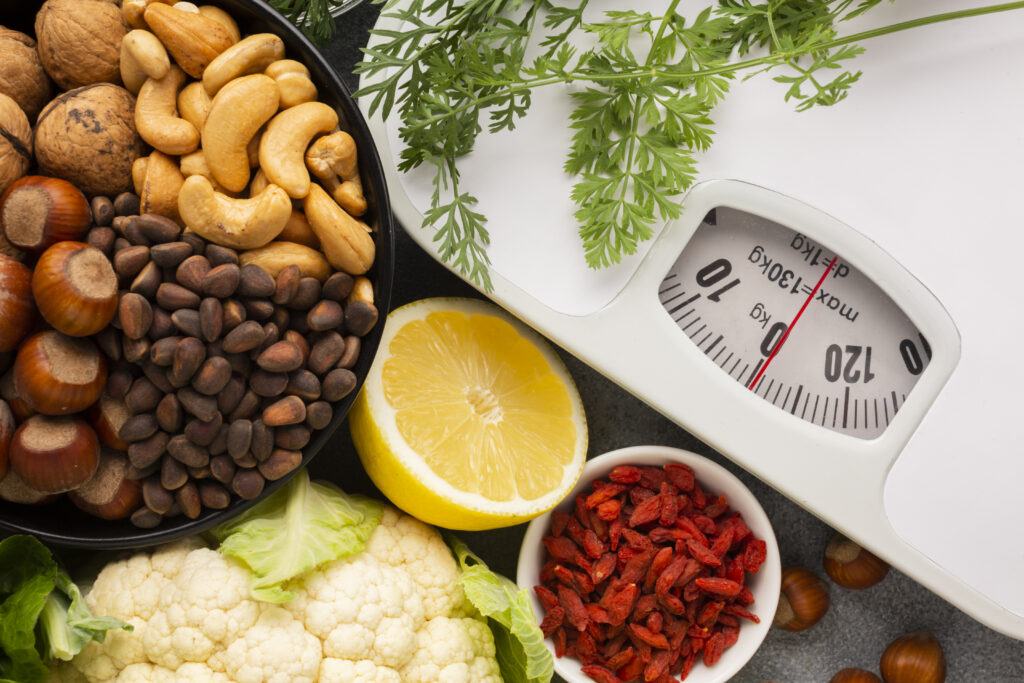
What Foods Can You Eat to Lower Blood Cholesterol?Different foods have different types of influence on cholesterol levels. For example, some foods give you polyunsaturated fats which directly influence the amount of cholesterol in your blood while others do this through soluble fibers that bind cholesterol droplets and drag them out of your digestive system and then body before they get absorbed in your bloodstream. Other kinds of foods containing plant sterols and stanols, help your body block the absorption of cholesterol. You can try the following food items to get the above-mentioned benefits.
Oats: A bowl of oatmeal or cold oat-based cereal like Cheerios as breakfast is a first step to struggling to lower your cholesterol levels. This oatmeal contains 2 to 3 grams of soluble fiber. You need 5 to 8 grams of soluble fiber a day. To attain this quantity, you can add strawberries or bananas to your daily diet.
Barley and Whole Grains: This food can help you lower your cholesterol levels and decrease the risk of heart disease. Barley and other whole grains also contain soluble fiber like oat and oat bran.
Beans: These are great sources of soluble fiber. After eating beans you feel full for a longer time means that they take a while for the body to digest. Therefore, people who want to lose weight, like to eat beans. Beans are different types that you can like, including kidney beans, navy beans, garbanzos, black-eyed peas, and lentils. This is one of the most versatile foods and also has many ways to prepare it.
Eggplant and Okra: These are low-calorie vegetables that are rich in soluble fiber. They help in limiting cholesterol quantities in your body.
Nuts: Different types of nuts such as walnuts, almonds, and peanuts are good for your heart health. A small quantity of nuts on a daily basis can slightly lower the LDL. Nuts have other nutrients that are useful for your overall health and beauty.
Vegetable Oils: Canola, sunflower, safflower, and some other vegetable oils help in lowering your cholesterol levels. Replace butter, lard, or shortening with liquid vegetable oils for cooking.
Some dietary changes or additions can help you top lower blood cholesterol levels naturally. here are are some effective ways to lower blood cholesterol levels.
Eat Soluble Fibers
Foods containing soluble fat are helpful sources to lower your blood cholesterol levels. Both kinds of fiber either soluble or insoluble, are necessary nutrients but consuming soluble fiber in large quantities can help absorb water and create a thick gel-like paste in a person’s intestines. This gel aids in trapping fats and dietary cholesterol. Thus your body is unable to absorb them. Foods abundant in soluble fiber are listed as:
- Fruits.
- Vegetables.
- Legumes.
- Beans.
- Whole grains.
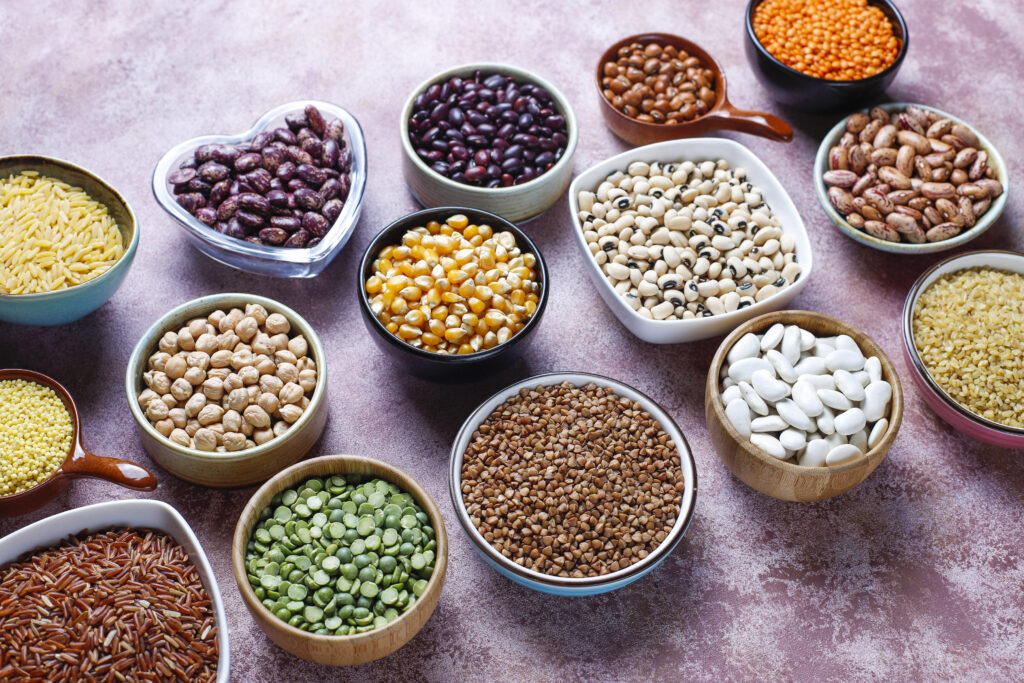
According to a medical survey report, most of the people in the country do not take the required quantities of dietary fiber. A journal about calorie requirements published in 2000 suggested that a person should take around 30 grams of dietary fiber per day for better health and to control cholesterol levels.However, some side effects are also linked to the consumption of excessive amounts of dietary fiber such as stomach pain, bloating, and constipation. Therefore, it is recommended that you try to increase your soluble fiber intake gradually over time.
Add Vegetables and Fruits to Your Diet
Scads of ingredients that help lower your blood cholesterol levels are found in fruits and vegetables, including fibers, eye-appealing pigments, and cholesterol-blocking molecules. Your heart-healthy grocery list spans the color spectrum like carrots, plums, strawberries, yellow squashes, leafy greens, and blueberries. Your dietitian will guide you to follow a rule while choosing your foods, that is, the richer the hue, the better the food is for you.
Avoid Grains and Refined Sugars
Although whole grains are a good source of fiber, avoid refined flour and white rice as these grains can cause digestive problems. Add whole-wheat flour and brown rice to replace white bread and white rice. These are not only quick-cooking versions but also have a lot of fiber.
Sometimes you make the worst choices by substituting sugar for fat because food manufacturers may boost the sugar content of low-fat salad dressing and sauces to add flavor to your food. Always check the ingredients list while buying any food. Finding any ingredient relating to sugar or corn syrup in that list will be an alarm for you to replace this food product with a higher fat version excluding trans fat.
Always Count Your Calories

A tablespoon of fat contains 100 calories and ten calories per gram. Switching to a heart-healthy diet needs to keep tabs on your calorie intake for a while.
Increase the Use of Monounsaturated Fats
Most healthcare professionals recommend an overall low-fat diet for weight loss, but the results of various research are mixed on its effectiveness in lowering blood cholesterol. Experts have different thoughts about it. They say that a diet high in monounsaturated fats including a Mediterranean diet helps reduce harmful LDL levels and increase useful LDL levels. Some more sources of monounsaturated fats are:
- Olives.
- Nut butter.
- Avocado.
- Canola oil.
- Almonds.
- Cashews.
Add Polyunsaturated Fats in Your Diet
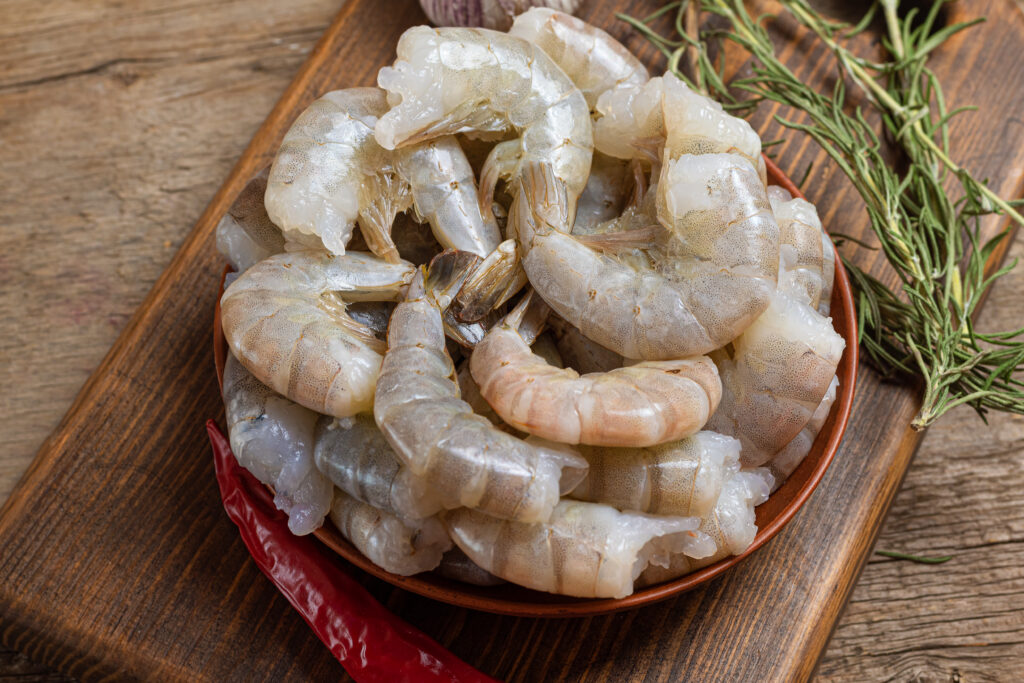
Polyunsaturated fats have a great contribution in lowering the levels of LDL in your blood and decreasing the risk of heart disease. Polyunsaturated fats are also effective in reducing the risks of type 2 diabetes and metabolic syndrome. A special heart-healthy type of polyunsaturated fats is called omega-3 fatty acids which are found in fish oil supplements and fatty seafood including:
- Herring.
- Deep sea tuna.
- Shellfish such as shrimp.
- Salmon.
- Mackerel.
Reduce Trans Fats Quantities in Your Diet
These are unsaturated fats that have been modified through hydrogen procedures. The hydrogenation process converts trans fats into vegetable oils. Your body deals with trans fats differently than other types of fats but not in a good way. Trans fats are responsible for removing beneficial HDL and increasing cholesterol and harmful LDL levels in your blood. Common foods containing trans fats are:
- Fried fast foods.
- Non-dairy coffee creamer.
- Pizzas.
- Shortenings and margarine.
- Baked goods and cakes.
- Microwavable popcorn.
Incorporate Exercise into Your Daily Routine
Exercise or light workouts are not only responsible for physical fitness but also help prevent obesity. Exercise is a win-win for your overall health. It also helps you reduce harmful LDL and increase beneficial HDL.
The Heart Association in the USA has advised in their journal about cholesterol reduction that 140 minutes of moderate aerobic exercises per week are effective for lowering cholesterol levels in your blood. Aerobic exercise along with regular strength training can also provide more benefits.
Maintain Your Weight
Obesity or excessively increasing weight can increase the risk of developing higher cholesterol levels in your blood. Therefore, it is recommended that losing weight can be helpful to lower your cholesterol levels.
In addition, weight loss also has beneficial effects on your overall health including increasing beneficial HDL in your blood. Talk to a specialist dietitian to determine a nutrient-dense diet plan for sustaining your weight management plan that can work for you.
Avoid Smoking
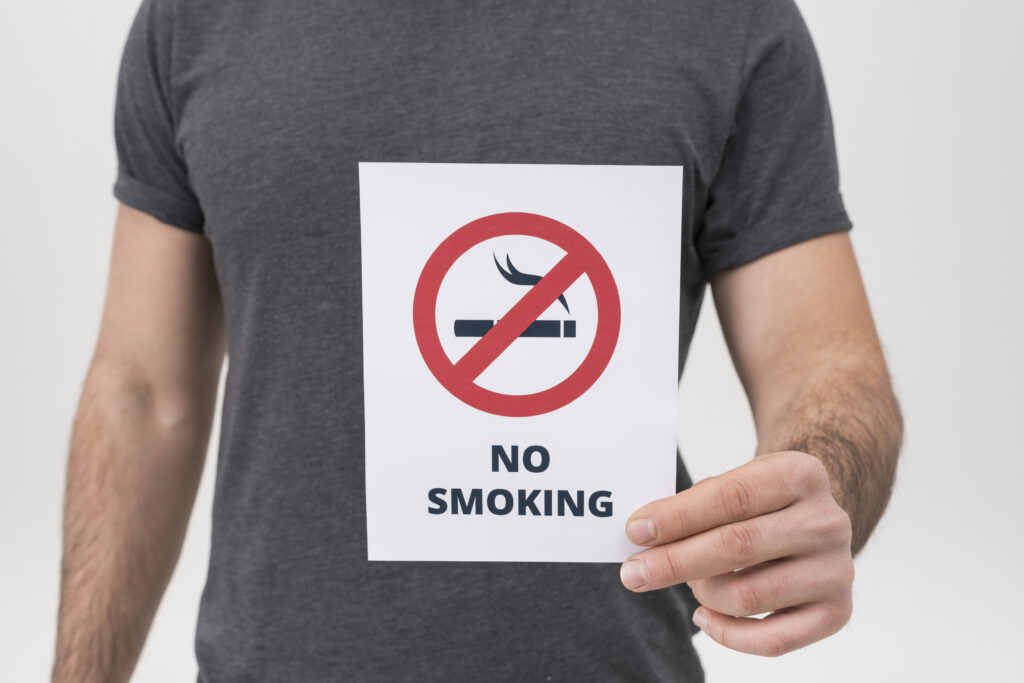
Smoking is a great source for increasing the risk of heart disease in several ways:
- Affecting cholesterol buildup in arteries.
- Increasing cholesterol absorption and transportation.
- Decreasing beneficial HDL.
- Increasing harmful LDL.
Therefore, you are suggested to quit smoking to reverse the harmful effects. An expert healthcare provider can help you better in creating the best plan to quit smoking that works for you.
Moderate Consumption of Alcohol
A controversial topic is under discussion alcohol plays a heart-protecting role. According to a 2023 review of studies, some researchers found that moderate consumption of alcoholic drinks can increase healthy HDL cholesterol levels and reduce the risk of heart diseases. However the association of heart disease control still disagrees with this research.
The Department of Cardiology never recommends drinking alcoholic beverages like wine or whisky to lower your cholesterol levels or promote your heart health. These health-related organizations do not admit any research linked with alcohol and heart health.
Thus it is a CDC suggestion only that if you are an addict, take two drinks per day for Maltese and one drink for females.
Use Plant Sterols and Stanols
Several types of supplements are available for managing your cholesterol levels. Plant versions of cholesterol such as plant stanols and sterols resemble cholesterol and your body absorbs them as cholesterol but these are not harmful to your health.
According to a 2021 study, taking a moderate amount of plant stanols or sterols daily can reduce LDL concentration by 8 to 10%. Vegetables contain small amounts of sterols and stanols that are added to certain vegetable oils and butter substitutes.
Try Supplements to Lower Blood Cholesterol Level
Certain types of supplements can help promote your heart health and improve cholesterol levels including:
- Psyllium is a specific type of soluble fiber used as a supplement to lower your cholesterol level.
- Coenzyme Q10 helps your cells to release energy for controlling the amount of cholesterol in your blood. It is a food chemical similar to vitamins that is used to make up the deficiency of Q10.
- Fish oil is a great source of Omega-3 fatty acids including DHA and EPA. All are effective for reducing triglyceride levels in your blood.
Despite having all this information about supplements, don’t forget to work with a medical professional before starting or changing the supplement dose.
Drink Plenty of Water
Your all body parts, even cells, require water for their better functioning. For example, your liver needs water to break down the larger molecules of cholesterol. Regular drinking water in enough quantity is essential to health and hydration is found to be associated with higher HDL levels which plays an important role in your metabolism. This recommends that in addition to being a healthy beverage option, drinking plenty of water can also help to control your cholesterol level.
Conclusion
Although cholesterol is needed by your body for performing several essential bodily functions such as hormone production and membrane formation, its higher concentration can enhance your risk of heart diseases including arterial blockage, heart stroke, and heart attack.
Cholesterol Levels can be lowered by adopting some beneficial dietary and lifestyle changes. Consuming enough quantities of soluble fibers, changing the types of fats you eat, regularly exercising, and avoiding smoking can help you to lower your cholesterol level.
Although cholesterol performs important functions in the body it can also cause heart disease and clogged arteries if not managed well.
You can control your cholesterol level by adding life interventions as the first line of treatment. You can add unsaturated fats, plant sterols, and soluble fibers to increase good HDL and decrease bad LDL. Moreover, weight loss and regular exercise can also help you in this regard.

